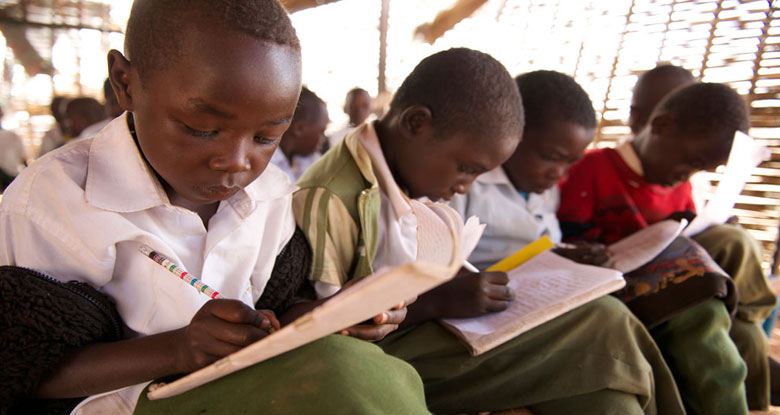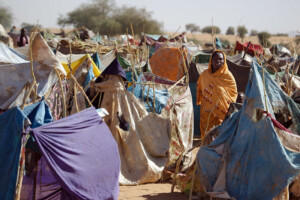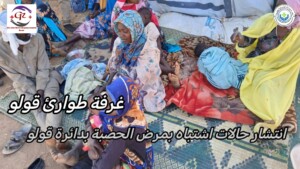‘Rehabilitated’ West Darfur schools reopen

Primary School children in Darfur (File photo: UNICEF / Shehzad Noorani)
The new academic year began in El Geneina, capital of West Darfur, as several schools have been rehabilitated following heavy violence and alleged mass atrocities during clashes between the Sudan Armed Forces (SAF) and Rapid Support Forces (RSF) since war broke out on April 15 last year.
Addressing residents of Ardamata on the occasion of the opening of the school year yesterday, the acting governor of West Darfur, El Tijani Karshoum, said that the issue of education has remained of great importance to the state government, acknowledging that but “in the recent period the government has been preoccupied with security and humanitarian issues”.
“Despite this, we continued to discuss the issue of education and how to return children to school with officials in the West Darfur Ministry of Education.”
Karshoum said he made it an essential component in his discussions with humanitarian organisations that began working in the state. “The Norwegian Refugee Council rehabilitated seven schools in El Geneina, motivated teachers, and repaired the ministry’s printing press to print textbooks and exams,” he says.
The director of education in El Geneina, Abdelmalik Khamees, said that primary middle and secondary schools will open two classes each, in addition to kindergartens in the Ardamata Administrative Unit.
Violence
As previously reported by Radio Dabanga, the paramilitary Rapid Support Forces (RSF) and their allied Arab militia groups stand accused of perpetrating a grave atrocity in the town of Ardamata and surroundings in November, in “an ethnically motivated mass attack specifically targeting the non-Arab Masalit community”.
Thousands were displaced, with many crossing the border to Chad. Dozens of women and girls were reportedly subjected to sexual violence.
Ethnically-motivated attacks on El Geneina since end April have reportedly killed more than 5,000 people, most of them Masalit.
The RSF officially took control of the city in early November.
School year
In early October, Osman Hussein, acting minister of Cabinet Affairs in charge of carrying out the duties of the prime minister, announced the start of the 2023-2024 school year for schools “in safe areas” no later than the end of that month.
Universities and colleges were set to resume their studies in mid-October, as per the direction of the acting minister of Higher Education, Mohamed Dahab.
With an estimated 19 million children out of school in the war zones, and many schools in safe areas having been turned into temporary shelters, Sudan’s education sector is still divided over the decision to resume studies.
In northern Sudan’s River Nile state, teachers ruled out that the state government’s decision to open schools on Sunday can be implemented.
“There are 80,000 displaced people in River Nile state, and about 50 percent of them have been accommodated in 23 primary schools and eight secondary schools,” teacher Mohamed Sayed told Radio Dabanga in November last year.
“The state government’s decision was wrong,” he stated, and referred to the decisions of neighbouring Northern state and more recently, El Gezira, south of Khartoum, to postpone the resumption of classes. The River Nile government did not take into account the humanitarian situation, and we should avoid what happened in El Gedaref where the displaced were violently removed.”











 and then
and then